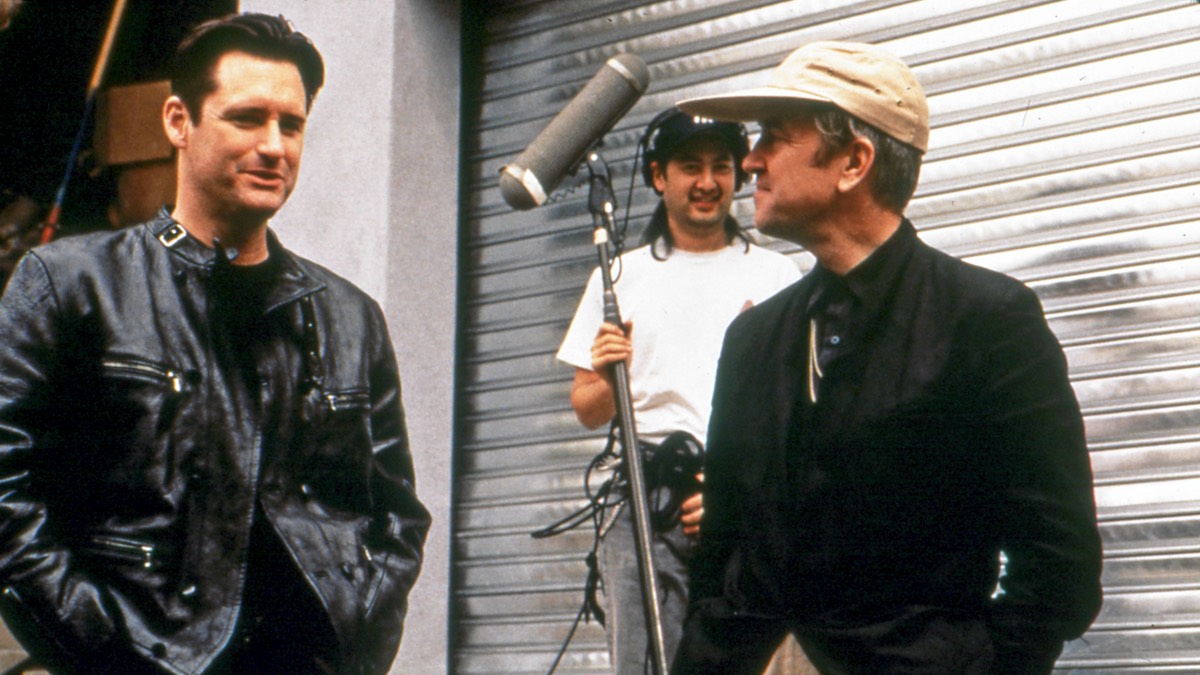
Lost Highway is a puzzle. It opens with a jealous husband who thinks his wife is having an affair, and ends with a deadly resolution, but what happens in between is ambiguous and complicated. There are unsettling video tapes left on doorsteps, threatening hallways that seem to swallow characters up, dream sequences that might be memories, a menacing man who is in two places at once, and a character switch at the end of the first act that takes the film in a completely different direction.
After following intense jazz saxophonist Fred Madison, we move into the life of laid back mechanic Pete Dayton who falls for Alice, a doppelgänger of Fred’s wife. The film becomes a noir mystery in this second act, as Alice seduces Pete, and draws him into conflict with the violent and unpredictable Dick Laurent.
Lynch loves psychological stories, and has said that he was thinking a lot about the OJ Simpson trial at the time he was writing Lost Highway, in particular how a man could kill two people and then carry on with his life as if nothing had happened. Twin Peaks’s Laura Palmer did a similar split within herself to cope with trauma, and that is the key to Lost Highway. Characters are archetypal, more than one character is not who they appear to be, and in the end Fred’s psychological problem of jealousy is solved.
In an interview with American Cinematographer, Lynch talks about how his ideas come into being, which I think shines a light on the unique quality all of his films have:
When asked to explain how his rather unique thought processes conspire to conjure up his cinematic visions, the director assumes a sincerely thoughtful expression. “Everything sort of follows my initial ideas,” he offers. “As soon as I get an idea, I get a picture and a feeling, and I can even hear sounds. The mood and the visuals are very strong. Every single idea I have comes with these things. One moment they’re outside of my consciousness, and the next moment they come in with all of this power.”
The complexity of Lost Highway might come from this process, where powerful images force themselves into Lynch’s work, and he has to work out what to do with them. It might be impossible to rationally explain it all. Sometimes the image requires a leap of faith, by the filmmaker and the audience.